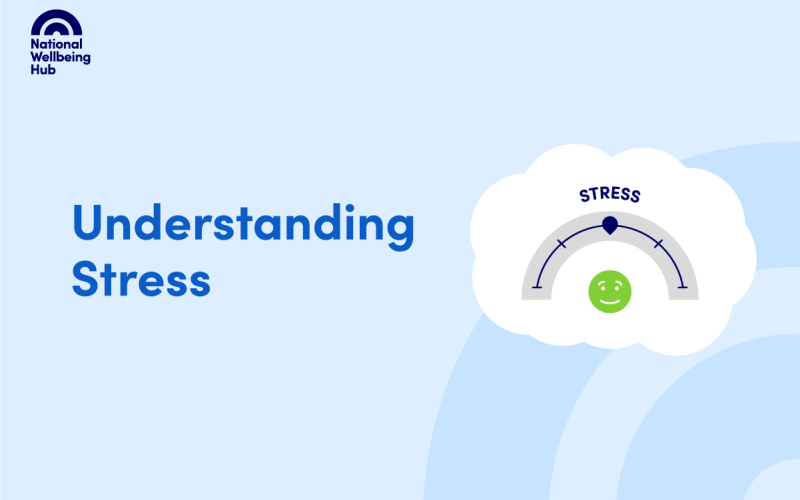Psychologically safe workplaces

What is psychological safety?
We’re all familiar with the frustration of sitting in a virtual meeting and trying to speak up, only to find you’ve forgotten to uncheck the dreaded ‘mute’ button.
When you’re working in an environment which isn’t psychologically safe, it can often feel like you’re on mute – unable to speak up and have your say or voice your opinions.
Feeling psychologically safe means feeling confident and comfortable that you can be yourself, that you can speak up without fear of judgement or criticism. It’s a feeling which encourages staff to communicate with one another, helping to foster bonds and supportive networks, and learn from each other’s knowledge, experience, past successes as well as mistakes. Ultimately, it helps to ensure we are all delivering the highest quality of safe care possible.
Why is psychological safety important?
Firstly, psychological safety improves communication among team members, leading to more knowledge sharing, error reporting, and learning opportunities. Open communication helps colleagues to learn from one another, sharing their knowledge and experiences, and develop collectively. It encourages staff members to innovate and think creatively, helping them adapt to problems as they arise and formulate novel solutions to solve them.
Psychological safety can also help improve staff wellbeing by creating a more inclusive working environment. We know, for example, that for staff working in high-risk, potentially traumatising roles, it is often workplace culture which has the biggest impact on wellbeing rather than the trauma aspects of the role. Engendering psychological safety within the workplace can bring with it a sense of cohesion and camaraderie. Thereby helping to protect staff from some of the potentially negative psychological consequences of their role.
From an organisational perspective, psychologically safe workplaces represent an opportunity to get the most from your team. Staff are likely to feel more engaged in what they’re doing, leading ultimately to improved team performance.
How do you develop psychological safety in the workplace?
Developing a culture of psychological safety isn’t the responsibility of any one person, it’s a collective effort where everyone can play a part.
Creating a culture where staff feel that they matter and that they’re being looked out for goes a long way to enhancing psychological safety. Colleagues checking in on one another and being available for each other when they need a bit of support or someone to talk to, can make a big difference when it comes to feeling that they matter. We call this peer support, and you can learn more about it and how to implement it in your workplace by following this link.
As a manager or leader, how your staff perceive you will hugely influence how psychologically safe they feel. Being supportive, trustworthy, and open about what you expect will all help. You may be familiar with Trauma Informed Practice. Safety, both physical and psychological, is a central tenet of the trauma informed approach, so the good news is that if this is something you are developing, then there’s a good chance you’re well on your way to having a psychologically safe workplace. You can find more information on trauma informed practice and how to implement it in the workplace by following this link.
Being a compassionate leader is another way to boost psychological safety in your workplace. This involves building relationships with your colleagues, listening to them and empathising with them, understanding the challenges they face and supporting them in working through these. You can read more about compassionate leadership in this article from the King’s Fund. You can also watch this webinar recording from NES on Collective and Compassionate Leadership. You’ll need a Turas account to watch that, you can create one by following this link. For additional leadership resources, check out the Leadership and Management Zone of the Turas site.
Psychological safety is all about feeling able to speak up. Any process which can be implemented which encourages staff to speak up and give honest feedback about their own or their colleagues performance, in a safe and respectful way, will therefore help in its development. One such process is reflective practice. Put simply, reflective practice is the process of reflecting on your performance, identifying what has gone well and what could be improved upon. You can find out more about reflective practice on the Turas learning site by following this link.
As we’ve said though, it’s not just down to you. Having access to wider organisational support can further boost how psychologically safe team members feel. This could be through access to coaching or mentoring opportunities, or the provision of occupational health support or employee assistance programmes, or other staff wellbeing initiatives. So try to make sure that any such opportunities are well promoted and visible to staff.
Everyone working in health, social care or social work in Scotland can make use of Leading to Change, who provide a range of leadership development programmes, opportunities and support for staff at all levels. You can find out more about Leading to Change by visiting their website.
Final thoughts
We’ve given you a lot of information in this article and introduced a number of different concepts – psychological safety, compassionate leadership, peer support, coaching and mentoring, reflective practice, trauma-informed practice. There are two pieces of good news though, first these are not mutually exclusive ideas, they fit together quite neatly. Second, you don’t need to do them all at once if you’re starting from scratch, introducing any of them should help ensure your workplace is a better environment for you and your staff.
A simple way to think of how these concepts fit together is to put psychological safety in the middle. On one side you have other factors which will each enhance psychological safety – namely peer support, compassionate leadership, coaching opportunities, and reflective practice. On the other side you have factors which psychological safety forms a part of, namely trauma-informed practice. If you are already implementing peer support or compassionate leadership in your workplace, then you are already on your way to improving psychological safety. Similarly, if you are in the process of developing trauma-informed practice in your organisation, then the chances are you’ve already given consideration to how you can enhance psychological safety.
Related
Most popular

Welcome to the Hub. We hope you’ll find the support you’re looking for. To help us improve the site and make it relevant to you, please take a minute to answer a few quick questions. Thank you.
Give us feedback








